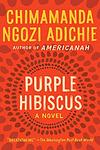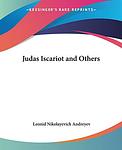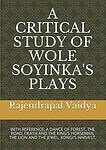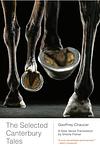The Greatest Nigerian, Russian "Fiction, Drama" Books Since 1900
Click to learn how this list is calculated.
This list represents a comprehensive and trusted collection of the greatest books. Developed through a specialized algorithm, it brings together 300 'best of' book lists to form a definitive guide to the world's most acclaimed books. For those interested in how these books are chosen, additional details can be found on the rankings page.
Genres
Drama is a genre of literature that typically deals with serious and emotional themes, often exploring the complexities of human relationships and the struggles individuals face in their lives. These books often feature intense character development and intricate plotlines, delving into the depths of human experience and the challenges of navigating the world around us. From family dramas to political intrigue, the drama genre encompasses a wide range of stories that aim to captivate readers with their raw and powerful storytelling.
Countries
Date Range
Reading Statistics
Click the button below to see how many of these books you've read!
Download
If you're interested in downloading this list as a CSV file for use in a spreadsheet application, you can easily do so by clicking the button below. Please note that to ensure a manageable file size and faster download, the CSV will include details for only the first 500 books.
Download-
1. The Cherry Orchard by Anton Chekhov
"The Cherry Orchard" is a classic play about an aristocratic Russian woman and her family as they return to their family estate, which includes a large and well-known cherry orchard. The family is on the brink of financial ruin and the estate is slated to be auctioned off. Despite various attempts to save their beloved home and orchard, they are ultimately unable to prevent the sale. The play is a poignant reflection on the changing social order and the decline of the aristocracy in Russia at the turn of the 20th century.
-
2. Half of a Yellow Sun by Chimamanda Ngozi Adichie
The novel is set in Nigeria during the Biafran War, exploring the impact of the conflict on the lives of its characters. The story is told from the perspective of three characters: a young houseboy, a radical university professor, and the professor's wealthy lover. The narrative delves into themes of love, race, and war, offering a vivid depiction of the horrors of conflict and the resilience of the human spirit.
-
3. Three Sisters by Anton Chekhov
"Three Sisters" is a play that revolves around the lives of three sisters, Olga, Masha, and Irina, who live in a provincial Russian town and yearn for their former life in Moscow. The story explores their relationships, dreams, and disappointments, as well as their interactions with the military officers stationed nearby. The narrative is a poignant exploration of love, loss, and the relentless passage of time, highlighting the human struggle for meaning and happiness.
-
4. Second-class Citizen by Buchi Emecheta
"Second-Class Citizen" is a poignant narrative about a young Nigerian woman, Adah, who dreams of getting an education and moving to the United Kingdom. Despite cultural and societal obstacles, Adah manages to achieve her dream but is met with more hardship as she faces racial discrimination, an abusive marriage, and the struggle of raising five children in a foreign land. Through her resilience, she continues to strive for a better life, depicting the struggles of immigrants and the strength of women.
-
5. Mother by Maxim Gorky
This novel centers around a working-class Russian woman who becomes involved in revolutionary activities after witnessing the struggles and injustices faced by her son and his comrades. Despite her initial fear and hesitation, she evolves into a dedicated activist, smuggling illegal literature and participating in strikes. The narrative provides a powerful exploration of the personal and societal transformations brought about by political activism, set against the backdrop of pre-revolutionary Russia.
-
6. The Joys Of Motherhood by Buchi Emecheta
"The Joys of Motherhood" is a poignant and powerful novel that explores the life of Nnu Ego, a Nigerian woman who struggles to find fulfillment and happiness in the traditional role of motherhood. Set against the backdrop of colonial Nigeria, the story delves into themes of gender inequality, cultural expectations, and the sacrifices mothers make for their children. Through Nnu Ego's experiences, the author offers a thought-provoking examination of the complexities and contradictions of motherhood in a rapidly changing society.
-
7. The Clay Machine-gun by Victor Pelevin
"The Clay Machine-gun" is a surreal and complex novel that explores the nature of reality and illusion. The story is set in post-Soviet Russia and follows a protagonist who has multiple identities, including a poet in 19th-century Russia, a 20th-century psychiatric patient, and a 21st-century advertising executive. The narrative moves between these identities and realities, blurring the lines between them and creating a layered and philosophical exploration of Russian society, identity, and the human psyche.
-
8. The Bedbug And Selected Poetry by Vladimir Mayakovsky
"The Bedbug And Selected Poetry" is a collection of poems by Vladimir Mayakovsky, a prominent Russian poet of the early 20th century. The book features a mix of Mayakovsky's avant-garde and politically charged works, showcasing his unique style and themes of revolution, love, and the struggles of the working class. Through his powerful and dynamic verses, Mayakovsky offers readers a glimpse into the social and cultural landscape of his time, while leaving a lasting impact with his thought-provoking and emotive poetry.
-
9. The Lower Depths by Maxim Gorky
The book is a stark depiction of the lives of the impoverished and dispossessed at the bottom of the Russian social ladder in the early 20th century. Set in a squalid shelter, it presents a group of destitute individuals from various backgrounds—thieves, prostitutes, and the down-and-out—who share their stories and philosophies as they grapple with the harsh realities of poverty and survival. The narrative delves into themes of human suffering, the struggle for dignity, and the elusive nature of truth, offering a grim commentary on the social conditions of the time and the human condition itself.
-
10. Purple Hibiscus by Chimamanda Ngozi Adichie
"Purple Hibiscus" follows the story of a 15-year-old Nigerian girl, Kambili, and her older brother Jaja, who live a privileged life in Enugu. However, their father is a religious fanatic and a domestic tyrant. The siblings are sent to their Aunty Ifeoma's home, a university professor, who provides them a taste of freedom and shows them a different way of life outside their father's oppressive rule. The novel explores themes of colonialism, religious fanaticism, and the post-colonial political situation in Nigeria.
-
11. Little Devil by Fedor Sologub
"Little Devil" is a dark and symbolic tale set in pre-revolutionary Russia, exploring the themes of evil and corruption through the eyes of a young boy. The protagonist, an outcast in his rural village, is both tormented and fascinated by the malevolent forces he perceives around him. As he delves deeper into his own imagination and the sinister aspects of human nature, the line between reality and fantasy blurs, leading to a series of tragic events. The novel delves into the psychological and moral decay of its characters, reflecting the broader societal decay of the time.
-
12. The Bride Price by Buchi Emecheta
"The Bride Price" is a novel that explores the life of a young Nigerian girl who, despite her father's disapproval, dreams of furthering her education. After her father's death, she is forced into an arranged marriage due to cultural traditions, but she defies the system and elopes with her lover. However, the consequences of unpaid bride price haunt her, leading to a tragic ending. The book highlights the clash between traditional African values and modern aspirations, the struggles of women in patriarchal societies, and the impact of colonialism on African cultures.
-
13. Death And The King's Horsemen by Wole Soyinka
"Death And The King's Horsemen" is a powerful play set in Nigeria during the colonial era. It explores the clash between traditional African beliefs and the influence of Western culture. The story follows the tragic consequences that unfold when a British colonial officer tries to prevent the ritual suicide of the king's horseman, who is duty-bound to accompany his deceased king to the afterlife. The play delves into themes of cultural identity, the clash of civilizations, and the consequences of interfering with sacred traditions.
-
14. Christmas At The Ivanovs' by Alexander Vvedensky
"Christmas at the Ivanovs'" is a satirical play that delves into the absurdities of Soviet life during the early 20th century. The narrative unfolds during a Christmas celebration at the Ivanov family's home, where a series of bizarre and surreal events take place. The characters, including a detective, a poet, and various family members, engage in nonsensical dialogues and actions, reflecting the author's avant-garde approach to theater. The play critiques the disconnect between the state's ideological propaganda and the grim realities of everyday life, using dark humor and chaotic scenes to challenge the audience's perception of normalcy and rationality within a society under strict political control.
-
15. The Zone by Sergei Dovlatov
"The Zone" is a semi-autobiographical novel that follows the life of a writer who is confined to a Soviet labor camp. Through a series of vignettes, the protagonist reflects on his experiences in the camp, the absurdities of the Soviet system, and the struggles of maintaining his identity and integrity in the face of oppression. With dark humor and sharp observations, the book offers a poignant and satirical portrayal of life in the Soviet Union.
-
16. Farewell To Matyora by Valentin Rasputin
The book is a poignant exploration of the tension between progress and tradition, set in a small Siberian village that is doomed to be submerged by the construction of a hydroelectric dam. As the government mandates the relocation of the village's inhabitants, the narrative delves into the lives of the villagers who are grappling with the loss of their ancestral home and way of life. The story is a meditation on the cost of modernization, the deep connection between people and their land, and the inevitable passing of time that brings change, often at the expense of cultural heritage and personal identity. Through the villagers' resistance and sorrow, the novel examines themes of environmental impact, the clash of ideologies, and the resilience of the human spirit in the face of displacement.
-
17. Creatures that Once Were Men by Maxim Gorky
"Creatures that Once Were Men" is a collection of short stories that depict the harsh realities of life in the lower classes of Russian society. The stories are set in a night refuge for the homeless, where the characters, despite their grim circumstances, strive to maintain their humanity. Through their struggles, the author explores themes of poverty, addiction, despair, and the human spirit's resilience.
-
18. The Stillborn by Zaynab Alkali
"The Stillborn" is a poignant narrative that explores the lives of women in a traditional African society, focusing on their struggles, resilience, and the quest for personal identity. The story delves into the complexities of polygamy, cultural expectations, and the impact of modernity on rural communities. Through the experiences of its female protagonists, the novel highlights the challenges faced by women in their pursuit of education, autonomy, and fulfillment in a male-dominated environment, ultimately offering a critique of the societal norms that stifle their growth and the transformative power of self-awareness and communal support.
-
19. Judas Iscariot by Leonid Andreyev
The book presents a reimagining of the character of Judas Iscariot, traditionally known as the betrayer of Jesus Christ. It delves into the psychological and moral complexities of Judas, exploring his inner turmoil, motivations, and the factors that may have led him to commit the act of betrayal. The narrative seeks to humanize Judas, offering a nuanced perspective that challenges the conventional vilification he has received throughout history. Through this character study, the book examines themes of guilt, redemption, and the nature of evil, ultimately raising questions about free will and the role of individuals within the grander schemes of destiny and divine plans.
-
20. The Time: Night by Ludmila Petrushevskaya
The book is a stark portrayal of the struggles faced by a multi-generational family living in the cramped quarters of a Moscow apartment during the twilight years of the Soviet Union. The narrative is driven by the matriarch, a poet who is both resilient and weary, as she navigates the complexities of caring for her mentally unstable daughter and her neglected grandson. The story delves deep into themes of maternal sacrifice, poverty, and the relentless passage of time, painting a grim picture of domestic life and the burdens of womanhood in a society that is as unforgiving as it is oppressive.
-
21. A Dance Of The Forest by Wole Soyinka
The book is a complex play that delves into the themes of identity, history, and the cyclical nature of human folly. It is set in an African village where the community is preparing for a festival to honor the return of their dead ancestors. As the living interact with the spirits of the past, the play reveals the characters' personal and political failings, reflecting on the post-colonial experience of African nations. Through a blend of myth, ritual, and satire, the narrative challenges the characters—and by extension, the audience—to confront their own complicity in societal issues, questioning the possibility of true progress and self-understanding.
-
22. Selected Tales by Leonid Andreyev
"Selected Tales" is a compilation of short stories that delve into the depths of human emotion and existential despair. The collection showcases the author's fascination with the darker aspects of the human psyche, exploring themes such as death, madness, and the search for meaning in a seemingly indifferent universe. Through a blend of realism and symbolism, the stories present a poignant commentary on the human condition, often highlighting the tragic ironies and complexities of life. The author's vivid prose and ability to evoke intense atmospheres make this anthology a profound reflection on the struggles of the soul and the moral dilemmas faced by individuals in times of crisis.
-
23. The Major Plays by Anton Chekhov
This collection brings together the most significant works of a master playwright whose stories unfold against the backdrop of Russian society at the turn of the 20th century. The plays are rich with complex characters, nuanced relationships, and social commentary, exploring themes of unrequited love, dreams versus reality, the passage of time, and the search for meaning in everyday life. The playwright's signature blend of tragedy and comedy, combined with a subtle use of symbolism and a focus on character development, has cemented these works as timeless explorations of human nature and the societal pressures that shape our lives.
-
24. Casualties by John Pepper Clark
"Casualties" is a collection of poems that explores the themes of violence, war, and the human cost of conflict, particularly focusing on the Nigerian Civil War and its aftermath. The poet delves into the emotional and physical toll on individuals and society, reflecting on the senselessness of violence and the loss of innocence. Through vivid imagery and poignant verse, the work captures the despair and disillusionment of a nation in turmoil, while also offering a critique of the political and social issues that lead to such conflicts. The poems serve as a powerful reminder of the enduring impact of war on the human spirit.
-
25. Zuleikha by Guzel Yakhina
"Zuleikha" is a captivating historical novel set in 1930s Soviet Union, following the life of Zuleikha, a Tatar woman who is forcefully taken from her home and exiled to Siberia. As she struggles to adapt to the harsh conditions of the remote village, Zuleikha finds solace in her resilience and the unexpected connections she forms with her fellow exiles. Through her journey of survival, love, and self-discovery, Zuleikha's story beautifully explores themes of identity, freedom, and the indomitable human spirit.
Reading Statistics
Click the button below to see how many of these books you've read!
Download
If you're interested in downloading this list as a CSV file for use in a spreadsheet application, you can easily do so by clicking the button below. Please note that to ensure a manageable file size and faster download, the CSV will include details for only the first 500 books.
Download



















